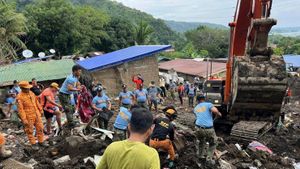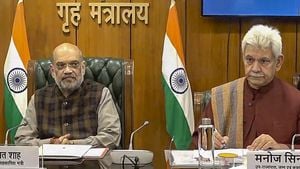The situation between Israel and Hezbollah has escalated dramatically after the recent Israeli airstrike on November 17, 2024, which resulted in the death of Mohammed Afif, Hezbollah's media relations chief. This incident occurred during Israel's continued military operations aimed at weakening Hezbollah's presence and capabilities amid the broader conflict involving Gaza.
Hezbollah confirmed the death of Afif, indicating the attack took place in Beirut's Ras al-Naba neighborhood, where the Israeli strike reportedly demolished part of the headquarters of the Baath political party, damaging surrounding structures and injuring at least 14 others. The Lebanese health ministry reported four fatalities from the strike, alongside significant destruction as rescue operations unfolded immediately following the event.
According to the Israel Defense Forces (IDF), Afif had long been associated with Hezbollah since the 1980s, and was recognized as one of the group's senior operatives involved not just in media relations, but also significantly influencing the organization's military strategy. The IDF described him as Hezbollah's chief propagandist, asserting he was directly involved in orchestrated terrorist activities aimed at Israel, including directing the gathering of footage used for psychological warfare.
This airstrike is part of Israel's broader strategy, actively targeting figures within Hezbollah, which it alleges has gained notoriety for its aggressive posture against the state of Israel throughout previous conflicts. The recent strikes represent what analysts suggest might be Israel’s attempt to signal greater resolve and perhaps expand its targeting criteria within Lebanon.
The ramifications of Afif's assassination are particularly concerning as they reflect an apparent shift broader than targeting military personnel alone. Hezbollah, which holds significant political power within the Lebanese parliament, finds itself grappling with these continuous Israeli attacks. Commentators from various media outlets have pointed out the danger this signals for regional stability, igniting fears of potential wider engagements or conflicts.
Notably, just hours after the initial strike, which claimed Afif’s life, another Israeli air raid targeted the Mar Elias area of Beirut, resulting in additional casualties. Reports indicated at least two more deaths and over thirteen injuries, intensifying the crisis and raising alarms among local populations.
The Lebanon-Israel border remains tense, with previous weeks featuring barrages of Israeli strikes primarily aimed at military targets linked to Hezbollah, along with other militia formations sympathetic to Iran’s interests. The IDF claims its actions are necessary to dismantle what it describes as terrorist threats against its sovereignty, particularly as the group launches rocket fire from specific facilities. These exchanges have resulted in significant loss of life, with more than 3,400 reported casualties since the onset of hostilities, including at least 2,600 during the latest Israeli military operations starting late September 2024.
U.S. officials have been involved, with plans for envoy Amos Hochstein to visit Beirut shortly after these aggressive exchanges to discuss potential ceasefire arrangements. This diplomatic effort coincides with heightened tensions and continues to reflect Washington’s long-standing role as mediator within the region.
The reality on the ground, as portrayed by various observers, characterizes the populace's growing fears, marked by alarm and uncertainty about what the future holds. Civilian areas are increasingly caught up amid military operations, with many localities experiencing the devastating effects resulting from these escalations.
The larger international community fires warnings as calls for de-escalation grow. Attacks on civilian infrastructure and loss of innocent lives evoke sharp criticism, reigniting discussions about humanitarian conditions exacerbated by conflict. Lebanon, still reeling from previous crises, now faces the haunting specter of yet another wave of violence and suffering borne from its geopolitical struggles.
Hezbollah's response to Afif's assassination is yet to be fully mobilized, but there is speculation about potential retaliatory measures, as the group typically vows to avenge losses against its ranks. This situation remains fluid, with each strike inciting fears of broader confrontations not just within Lebanon but potentially involving adjacent regional states as well.
For now, the world watches closely as the ramifications of the airstrike ripple throughout the region, shaping narratives of power, control, and resistance within the complex landscapes of Middle Eastern politics.



